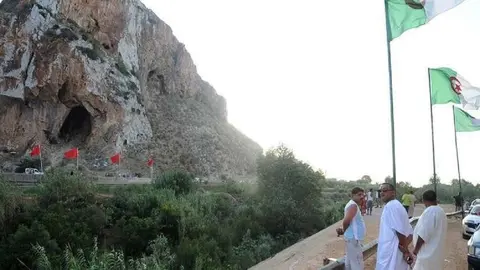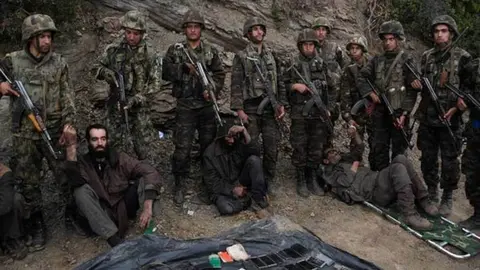Algeria launches plans for an Atlantic outlet
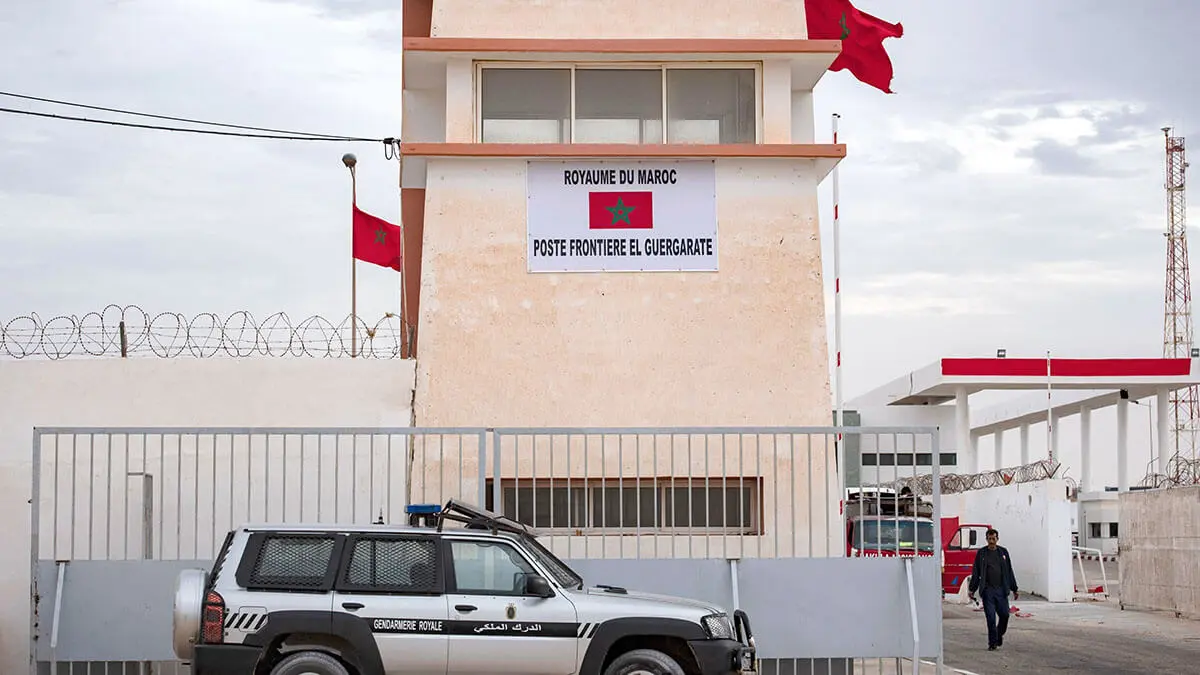
Last week, Algerian President Abdelmadjid Tebboune travelled to Tindouf as part of "a working and inspection visit", with the aim of inaugurating and inspecting "several key development projects", as reported in Algerian media. This trip comes in the midst of Algeria's presidential election campaign, as well as other relevant developments in the region. Tebboune's visit to Tindouf also coincides with Morocco's renewed success in reasserting its sovereignty over its southern regions.
Rabat's diplomatic achievements have pushed the Algerian regime into unprecedented isolation, thus thwarting its expansionist ambitions towards the Atlantic coast through southern Morocco.
During his visit to Tindouf, Tebboune stressed that Algeria "regained its strength and its fundamental and pioneering position at regional and international level thanks to the People's National Army and the loyalty of its men". He assured that the state of Tindouf would become a real industrial centre, stressing in this respect the Ghar Jbeilat mine and the railway, two projects which he considered "vital" and which would contribute to eliminating unemployment and guaranteeing jobs for the benefit of the region's young people.
Tindouf is located 1,750 km from the country's capital. It is close to the borders of Mauritania and Morocco, making it of great strategic importance, and includes Algerian military bases. It has also been home to Sahrawi refugee camps since 1975 and, in January 1976, the Polisario Front announced from these camps the establishment of the so-called "Sahrawi Arab Democratic Republic" with direct control and support from the Algerian regime.
In addition, the area is noted for its natural wealth, underground resources, soils and mines rich in uranium, gold, gas, iron and phosphates, according to Al-Arab. In this regard, a study published by the American Research Center in 2019 revealed that the wealth of the Algerian desert exceeds the value of 26 trillion dollars, a wealth that has not been exploited or invested.

Despite this wealth, however, Algeria is "a rich country inhabited by poor people", as Al-Arab puts it. This is also due to policies and corruption, as well as heavy state investment in armaments. An analysis published by the website 'WorldCrunch' last June stated that Algeria's enormous wealth of natural resources 'is no longer enough to hide the backwardness of the country's economy from its Maghreb neighbours, and it is likely to face 'serious difficulties by 2028'.
Instead of focusing on these resources, the Algerian regime has focused on developing a 600 million euro road project linking Tindouf and the Mauritanian town of Zouerate, stretching over a distance of 775 kilometres. According to analysts quoted by Al-Arab, this plan demonstrates "the desperation to break through Morocco's wall".
The Tinduf-Zouérat road is planned to be the first stage to the Atlantic coast through Mauritanian territory, either via a new road for vehicles or by relying on the railway linking Zouerate and the coastal town of Nouadhibou over a distance of approximately 650 km.
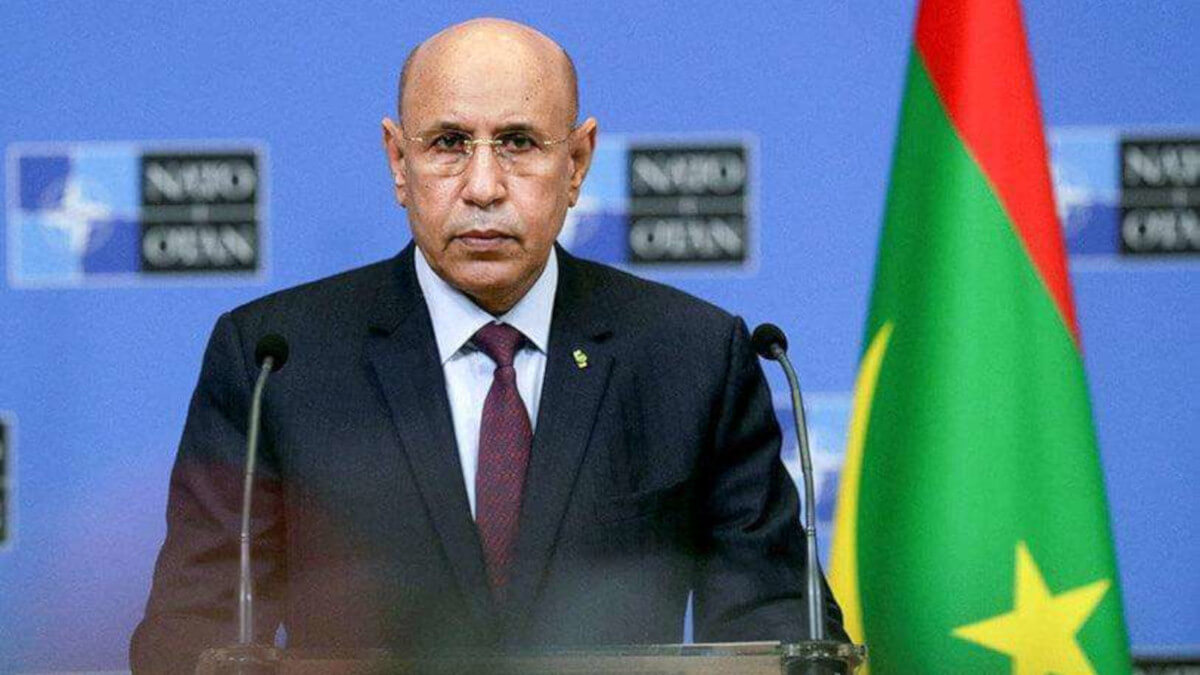
According to Al-Arab, movement along the rough terrain of the Tindouf-Zouérat road requires intense security efforts by Algeria and Mauritania due to the activity of terrorist and armed groups trafficking arms and drugs.
Algiers hopes that Mauritanian ports could provide an opportunity to improve trade with South American countries and export its mining materials exploited in the Ghar Jbeilat mine, with reserves valued at 3.5 billion tonnes of iron ore. The mine is currently operated in cooperation with Chinese companies.
For decades, the Algerian regime has linked development projects in the south-western regions of the country with its expansionist ambitions at the expense of Morocco's sovereignty over its desert. Since the mid-1970s Algeria's leaders have struggled to open an outlet on the Atlantic coast to perpetuate "the trend of expansion and domination", writes Al-Arab.

A CIA document from December 1977, declassified in November 2012, stated that former Algerian president Houari Boumediene used the pretext of the Sahrawi people's self-determination to justify his adoption of the Polisario Front's thesis and support it with money and weapons, thus trying to hide the fact that its main objective is to weaken Morocco, take the initiative in the Maghreb region and reach the Atlantic Ocean.
The document also adds that 'although Algeria's ostensible reason for supporting the Polisario is the principle of self-determination, it is its historical competition with Morocco for hegemony in northwest Africa that is its main motivation'.
"Algeria's objective in the conflict is to establish an independent Sahrawi republic, over which it will have a dominant influence," the document explains. This would deprive Morocco of important economic resources in the region and hinder Moroccan efforts to restrict Algeria's future access to the Atlantic Ocean.

The closest distance between Algeria and the ocean is between Umm Al-Ashar in the state of Tindouf and the Atlantic coast of the Moroccan territory, which is 165 kilometres, followed by the distance between the city of Tindouf itself and the Atlantic, which is 275 km, over flat, desert terrain with no natural obstacles or difficult terrain.
On 13 November 2020, the Algerian regime's ambitions to reach the Atlantic through the Sahara came to an end. On that day, the Moroccan army succeeded in surrounding the Polisario-affiliated groups and their military patrols present at the Guerguerat crossing and then forcing them to withdraw.
Experts consulted by Al-Arab consider that the Moroccan intervention in Guerguerat has made it clear that any negotiation scenario in which Algeria obtains an exit in the Atlantic Ocean is not possible. "Algerian generals who realised that the Moroccans are not willing to give up their historical rights or negotiate for them, whatever the circumstances," they point out.

Nevertheless, in his speech on the anniversary of the Great Green March, Morocco's King Mohamed VI opened the way for the Sahel countries to benefit from an exit to the ocean through his country. With the exception of Mauritania, which already has an Atlantic coast, countries such as Mali and Niger could benefit from what the king described as "Morocco's gateway to Africa and its opening window to the American space".
"We propose to launch an initiative at the international level, the aim of which is to give the Sahel countries access to the Atlantic Ocean. However, the success of this initiative still depends on rehabilitating the infrastructure of the Sahel countries and working to connect them to the transport and communications networks of their regional environment," the monarch explained.
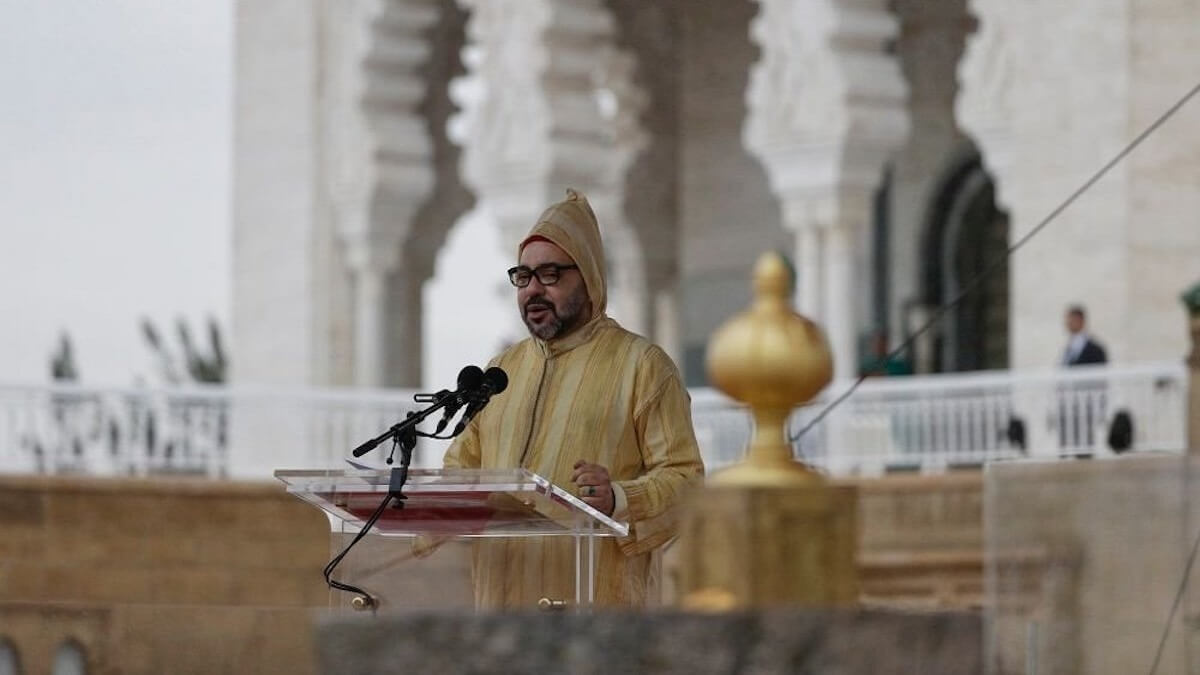
Mohamed VI added that Morocco "is ready to put its infrastructure, including roads, ports and railways, at the disposal of these brotherly countries, convinced that this initiative will constitute a fundamental transformation in their economy and in the region as a whole".

